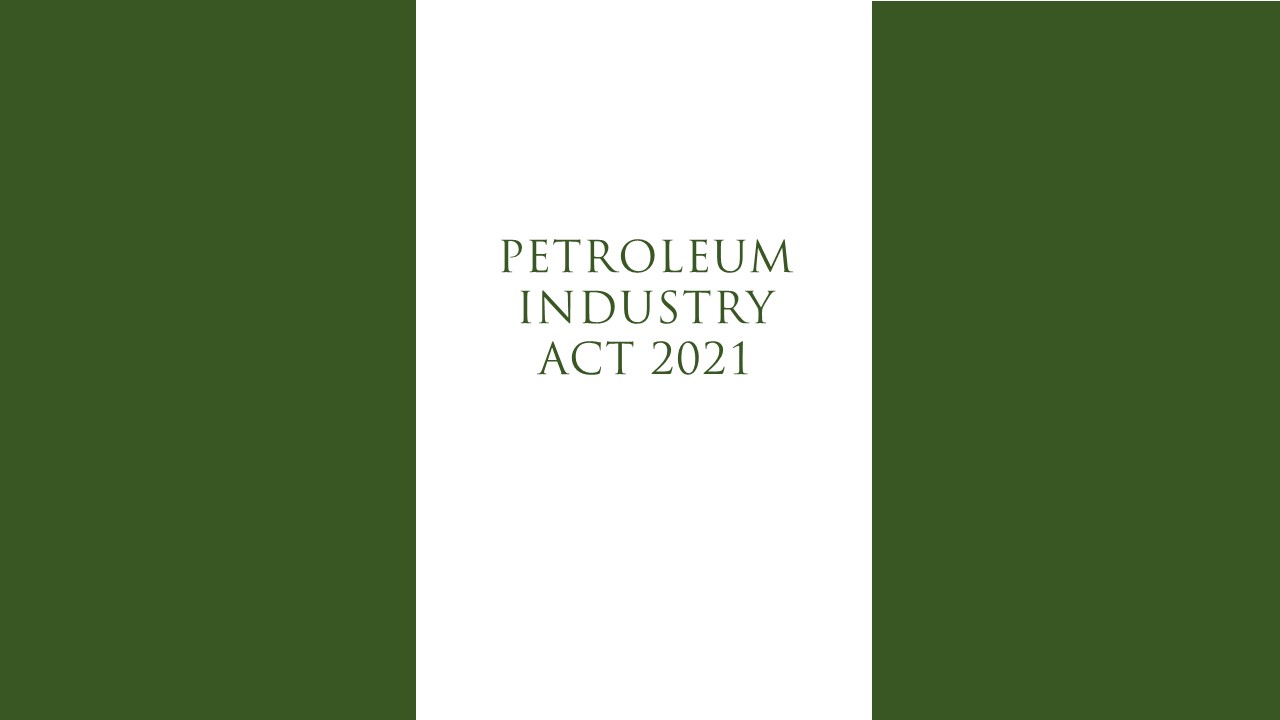A review of the Petroleum Industry Governance Bill 2016 (“the Bill”), which we reported last week passed first reading on the floor of the Senate shows that it largely retains the content of the first version, introduced late last year as the Petroleum Industry Governance and Institutional Framework Bill 2015, with a few amendments. The renewed attention given to the Petroleum Industry Bill (“PIB”) by the National Assembly by sponsoring this Bill is an indication of the lawmakers’ dissatisfaction with the seeming silence of the Executive on the matter.
Part One of this review focuses on the functions and powers of the Minister.
THE MINISTER
The Bill provides for the functions and powers of the Minister in two sections. Under Section 2(1) paragraphs a-i, the Minister is vested with eight functions similar to those provided in Section 6 of the PIB save for three distinct departures. The power to delegate is conferred under Section 2(2) whilst Section 3 addresses the Minister’s right of pre-emption.
- The Bill has done away with the Minister’s advisory and approval role stipulated in the PIB before the President can appoint the Board of the various agencies. The President is empowered to appoint the executive and non-executive members of the Board of the Petroleum Regulatory Commission (the “Commission”) (to be established pursuant to the Bill as the industry regulator) subject to confirmation of the Senate. This is a laudable improvement to the old Bill and extant legislation where the Chief executive of the Petroleum Inspectorate is appointed by the Petroleum Minister, (albeit with the approval of the National Council of Ministers) and is also subject to the direction and control of the Minister (and by extension, the Department of Petroleum Resources (“DPR”) and its Director General).
- The power to make regulations which is currently vested in the Minister by virtue of Section 9 of the Petroleum Act and maintained by the PIB has been removed and vested instead in the Commission as the regulatory body for the industry by Section 8(1) of the Bill. This provision deals specifically with regulations necessary to give proper effect to the provisions of the Bill and would not affect the provisions of other laws which grant the Minister powers to make regulations such as, the Nigerian Oil and Gas Industry Content Development Act, 2010. It is also worth noting that the Bill empowers the Minister to promote the development of local content in the Nigerian petroleum industry.
- Although the Bill maintains the Minister’s rights of pre-emption, a notable change has been made to this provision which is in keeping with current economic realities. Failure to comply with the Minister’s direction issued in respect of a right of pre-emption to petroleum and petroleum products brought on by a state of national emergency or war and obstruction or interference with the exercise of the powers of the Minister in this regard under the Petroleum Act attracted a maximum fine of NGN2,000 and NGN200 or a maximum prison term of six months or both respectively upon conviction. Under the PIB, the maximum fines for the two offences have been increased to NGN2,500,000 and NGN5,000,000 or a maximum prison term of two years or both respectively. The Bill however increases the fine for non-compliance to a maximum of NGN10,000,000 or a maximum prison term of six months or both; and for obstruction, a maximum of NGN5,000,000 or a maximum prison term of six months or both. The Minister is also empowered to make regulation to increase the financial penalties imposed under the Bill.
Under extant legislation, the Petroleum Act grants the Minister exclusive and unfettered power to grant licenses and leases and amend, renew, extend or revoke same pursuant to the provisions of the Act. The Bill, much like the PIB (save for the replacement of the word “advice” with “recommendation”), fetters the discretion of the Minister to issue licenses and leases for petroleum exploration and production activities. The Minister may now only exercise such powers based on the recommendation of the Commission. Currently, the grant of licenses is governed by the Petroleum (Drilling and Production) Regulations and applications are made to the Minister. It appears this would no longer be the case and such applications would now be required to be made to the Commission. Section 25 of the Petroleum Act entrusts the Minister with discretionary powers to revoke a license or lease based on certain criteria. Under the Bill, this power may only be exercised based on recommendations made by the Commission in this regard. Accordingly, Part 6, Section 84(1) of the Bill provides that the provisions of all existing enactments or laws, including the Petroleum Act, Petroleum Profit Tax Act and the Companies and Allied Matters Act, shall be read with such modifications so as to bring them into conformity with the Bill. We expect that regulations would be made which clearly defines new procedures to be adopted.
In our next report, we will continue with an analysis of the proposed sector regulator, the Petroleum Regulatory Commission.


